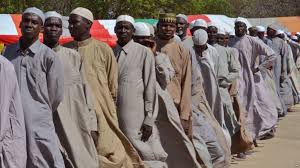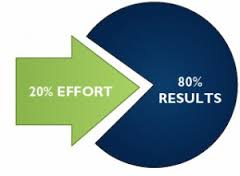- WHAT PRIMEFIELD LIMITED (PFL) DOES IN THE BORNO STATE REHABILITATION, RECONSTRUCTION AND DEVELOPMENT AS PART OF ITS CORPORATE SOCIAL RESPONSIBILITY

Primefield Limited (PFL) provided part of its Hotel estate in Maiduguri for resettlement and rehabilitation. Also sponsoring NGOs and the disaster management experts to takes stock of the overall situation of disaster-affected local government areas (LGAs) and assesses needs for rehabilitation measures and sustainable recovery of growth and development in the food and agricultural sectors in the medium to long-term. This assistance is aimed at reducing susceptibility to further disasters and emergencies.
Within this framework, PFL team identifies investment opportunities and formulates programmes and projects for donor funding. This includes programmes to assist resettlement and reintegration of refugees, internally displaced persons and ex-combatants.

PFL plays a role in following-up immediate agricultural relief with longer-term programmes such as dams and irrigation systems, markets and crop storage facilities etc.
2.1 BUILDING A PROGRAMME APPROACH
The objectives of PFL activities in rehabilitation, reconstruction and
recovery are to assist disaster-affected LGAs to move from a need
for emergency relief to sustainable development of agriculture, food security and nutritional well-being. This is achieved through the restoration of rural production systems, livelihoods, infrastructure, institutions and services affected by disaster. A coherent strategy and policy framework also must be established and priority programmes and projects for medium to long-term sectoral growth and development must be identified.

This may necessitate a wide range of interventions, encompassing the following: rehabilitation of the agricultural resource base;
reconstruction of agricultural infrastructure; re-establishment of reliable agricultural input supply systems; re-activation of agricultural services. Including marketing, processing and distribution systems; strengthening the capacity of local institutions/agencies to identify constraints to household food security and nutrition and the groups most affected, and to design and implement concerted strategies to address these constraints; recovery – or an opportunity for reform or replacement – of state and parastatal institutions for food and agriculture;
examination of technical options for future sectoral growth and
development; and establishment of a strategic and policy framework for selecting and pursuing appropriate options, and of the necessary regulatory systems.
These interventions would normally need to be considered within the context of an overall rehabilitation and recovery programme rather than piecemeal approach. This is due to the scale and range of the interventions required. The programme may need to address basic issues of options, strategies and policies for the agricultural sector. It must also relate to comparable programmes under development in other sectors by other international and bilateral agencies. Indeed donor funding for individual projects may only be forthcoming if those projects are situated clearly within a sector policy framework which addresses the whole range of issues raised by disaster impacts on the sector.
The post-disaster situation may represent a `clean slate’ which may
necessitate looking beyond a restoration of the pre-disaster situation. This is particularly the case with regard to sector strategies and policies, and state institutions and services. Such opportunities include investment in a more productive, equitable and efficient – and less disaster-prone – agricultural sector, development in livelihoods and food security. These opportunities lead to sustainable recovery. They must involve a high degree of participation based on existing community and local civil society structures and systems of authority.

Similarly, not only must longer-term recovery and development programmes build on rehabilitation interventions, but in view of the gestation period required for putting such programmes into practice the process of assessing options and developing strategies and policies for them must also begin early on in the rehabilitation process. Moreover, their design needs to incorporate appropriate elements of disaster prevention and preparedness if the recovery is to be sustainable. Where the risk of emergencies is related to unresolved social tensions, whether latent or overt, this necessarily includes strategies for promoting sustainable peace.
To be continued
2.2 ROLES AND RESPONSIBILITIES
2.2.1 PFL’s Policy Co-ordinating Service (PCOS) PFL’s Investment Centre (PIC) and PFL’s Special Relief Operations Service (PSROS) Roles
